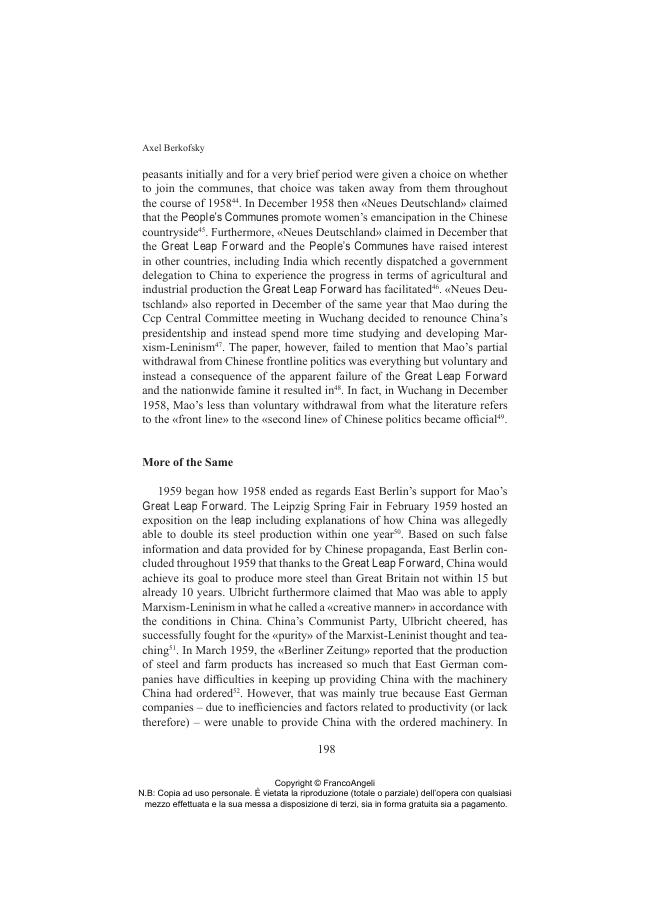From comrades-in-arms to enemies : Mao Zedong's domestic and foreign policies follies as seen from East Berlin
P. 188-208
The article analyses the scope and quality of selected aspects and issues of relations between the German Democratic Republic (Gdr) and China in the 1950s and early 1960s. How was Chinese dictator Mao Zedong's Hundred Flowers Campaign perceived and interpreted in East Berlin, why and until when was Gdr leader Walter Ulbricht supportive of and indeed enthusiastic about Mao's disastrous Great Leap Forward are among the questions this article will address and seek to answer.
As it turned out, East German leaders' assessments and newspaper reporting on Mao's domestic and foreign policy and government propaganda did not in any way correspond with Chinese on the ground realities. The same was true for Chinese reporting and propaganda on Ulbricht's decision to divide Berlin with a wall in 1961: misleading and wrong reporting in support of a fair-weather friendship, in the wake of the Sino-Soviet Split in early Sixties would turn into enmity. [Publisher's text]
-
Articles from the same issue (available individually)
-
Information
ISSN: 1594-3755
KEYWORDS
- Gdr-China relations, Gdr foreign policies, Hundred Flowers Campaign, Great Leap Forward, Berlin Wall



